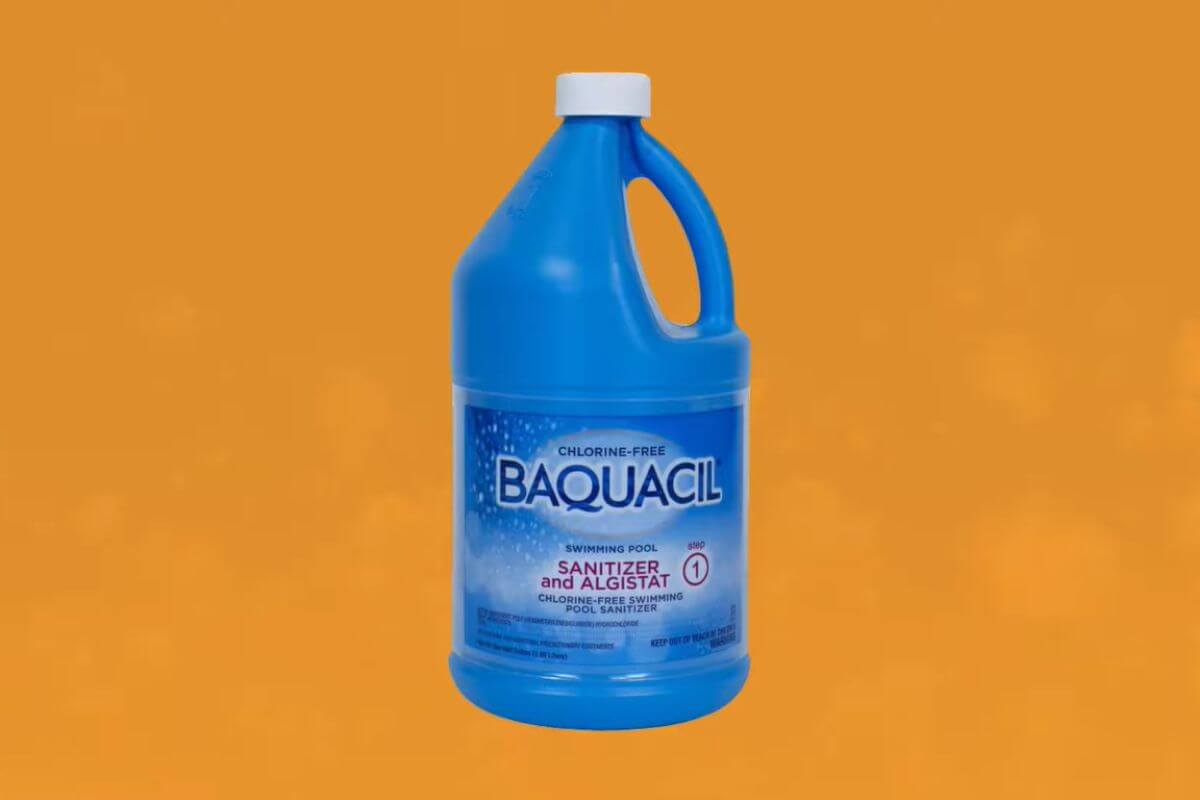Introduction
Having a swimming pool is a great way to enjoy the summer months and create lasting memories with family and friends. However, maintaining a clean and safe pool requires the use of an effective pool sanitizer. When it comes to pool sanitizers, two popular options are Baquacil and chlorine. In this article, we will compare Baquacil and chlorine, highlighting their pros and cons, and help you choose the right pool sanitizer for your needs.
Understanding Pool Sanitizers
Pool sanitizers are chemicals used to eliminate bacteria, viruses, algae, and other contaminants in the water, ensuring a safe and healthy swimming environment. They work by breaking down organic matter and preventing the growth of harmful microorganisms.
Baquacil: Pros and Cons
Baquacil is a non-chlorine pool sanitizer that utilizes a different active ingredient called polyhexamethylene biguanide (PHMB). Here are some of the pros and cons of using Baquacil:
Pros of Baquacil
- Gentle on skin and eyes: Baquacil is known for being less harsh on the skin and eyes compared to chlorine. It is a popular choice for individuals with sensitive skin or allergies.
- Reduced chlorine odor: Baquacil does not produce a strong chlorine odor, which can be off-putting for some pool owners.
- Stable sanitizer: Baquacil remains effective for a longer period and does not break down when exposed to sunlight, making it suitable for outdoor pools.
Cons of Baquacil
- Cost: Baquacil is generally more expensive than chlorine sanitizers, which can make it less budget-friendly for some pool owners.
- Limited availability: Baquacil products may be harder to find compared to chlorine-based sanitizers, as chlorine is the more widely used option.
Chlorine: Pros and Cons
Chlorine is the most commonly used pool sanitizer worldwide. It is available in various forms, including chlorine tablets, liquid chlorine, and chlorine granules. Here are the pros and cons of using chlorine as a pool sanitizer:
Pros of Chlorine
- Cost-effective: Chlorine sanitizers are typically more affordable than Baquacil, making them a popular choice for many pool owners.
- Widely available: Chlorine products are widely available in stores, making them easily accessible for pool maintenance.
- Effective disinfectant: Chlorine has proven to be highly effective in killing bacteria, viruses, and algae, keeping the pool water clean and safe.
Cons of Chlorine
- Skin and eye irritation: Chlorine can cause skin dryness, irritation, and redness in some individuals. It can also irritate the eyes if not properly balanced.
- Strong odor: Chlorine can produce a strong chemical smell that some people find unpleasant.
- Potential fading of pool equipment: Over time, chlorine can cause gradual fading of pool liners, swimwear, and certain pool equipment if not properly maintained.

Factors to Consider When Choosing a Pool Sanitizer
When deciding between Baquacil and chlorine, several factors should be taken into consideration:
- Personal preferences: Consider your own sensitivities and preferences regarding the smell, skin sensitivity, and eye irritation potential of the sanitizers.
- Budget: Determine the cost-effectiveness and availability of the sanitizers within your budget.
- Pool usage: Assess the frequency of pool usage and the number of swimmers to ensure the sanitizer can handle the demand.
- Water balance: Consider the impact of the sanitizer on the pool’s pH and overall water balance.
- Maintenance requirements: Evaluate the ease of use and maintenance requirements of the sanitizers.
Comparing Baquacil and Chlorine
Baquacil and chlorine have their own unique advantages and disadvantages. Ultimately, the choice between the two depends on your specific needs and preferences. Consider the following points when making your decision:
- If you have sensitive skin or allergies, Baquacil may be the better option for you due to its gentler nature.
- If cost is a significant factor and availability is important, chlorine may be the more suitable choice.
- For long-term stability and effectiveness, Baquacil is known for its durability under sunlight exposure.
- If you prefer a widely used and proven sanitizer, chlorine has a long-standing reputation for effectively sanitizing pools.
Remember, regular testing and maintenance are crucial regardless of the sanitizer you choose to ensure optimal pool water quality and safety.
Conclusion
Choosing the right pool sanitizer is essential for maintaining a clean and healthy swimming pool. Baquacil and chlorine are both viable options, each with its own set of advantages and disadvantages. Consider factors such as personal preferences, budget, pool usage, water balance, and maintenance requirements when making your decision. Whether you opt for Baquacil or chlorine, proper usage and regular maintenance will help keep your pool water safe and enjoyable for everyone.
FAQs
Is Baquacil safer than chlorine?
Baquacil is considered safer for individuals with sensitive skin or allergies due to its gentler nature. However, both Baquacil and chlorine can be used safely when properly handled and maintained.
Can I switch from chlorine to Baquacil or vice versa?
Yes, you can switch from chlorine to Baquacil or vice versa. However, it is essential to properly clean and balance the pool water before transitioning to the new sanitizer.
Does Baquacil require less maintenance than chlorine?
Baquacil generally requires less frequent monitoring and maintenance compared to chlorine. However, regular testing and maintenance are still necessary to ensure optimal pool water quality.
Can Baquacil be used in all types of pools?
Baquacil can be used in most types of pools, including vinyl, fiberglass, and plaster pools. However, it is always recommended to consult the manufacturer’s guidelines and test the water regularly.
Which sanitizer is more cost-effective in the long run?
Chlorine is generally more cost-effective in the long run due to its lower initial cost and wider availability. However, it’s important to consider your specific needs and preferences when making a decision.



